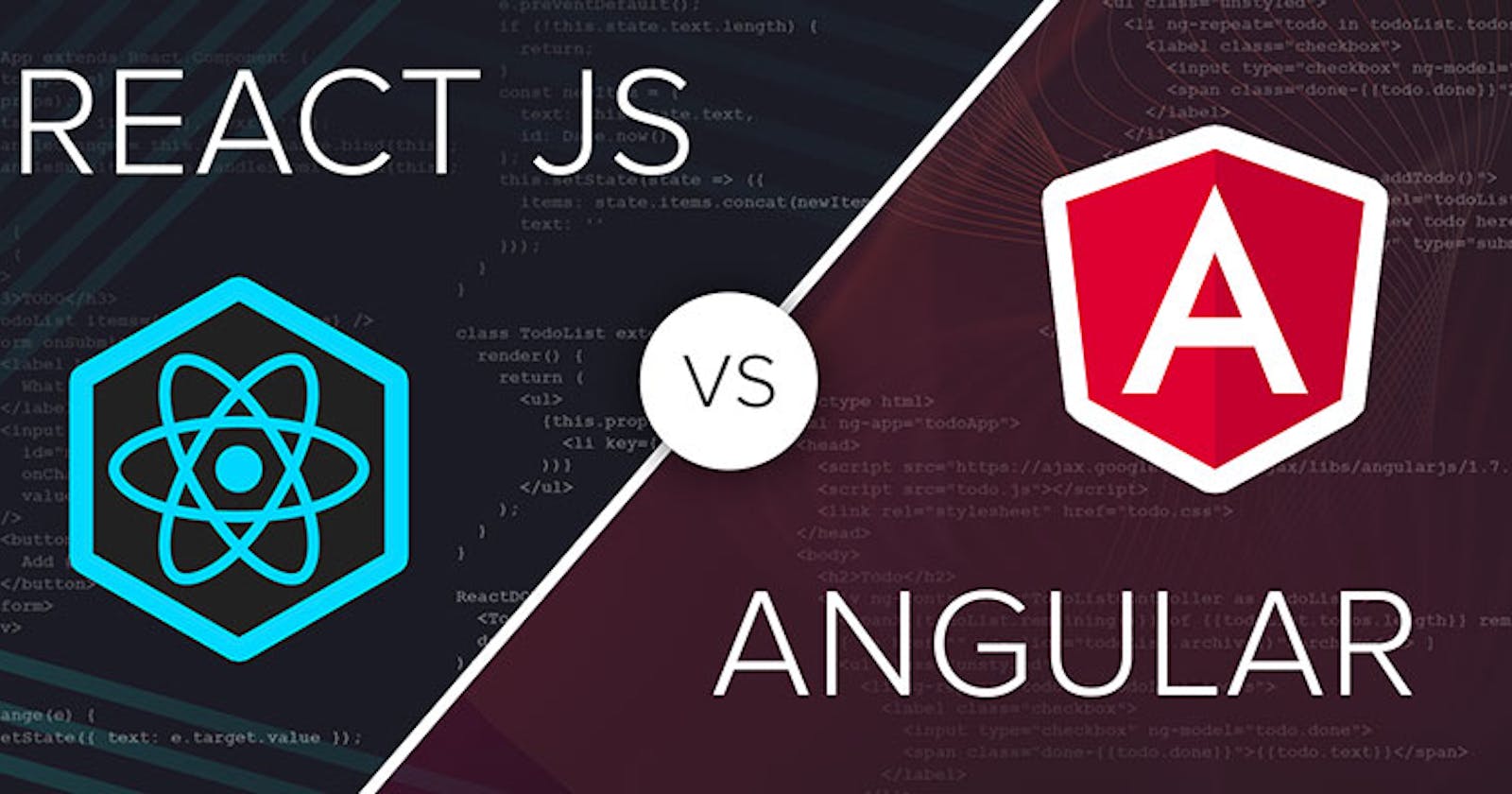Table of contents
Angular and React are two of the most popular and powerful tools for web development. They both allow you to create user interfaces for your web or mobile apps, but they also have some significant differences. How do you choose between them for your next project? Here are some factors to consider:
Learning curve:
Angular is a full-fledged framework that provides a lot of features out of the box, such as routing, forms, dependency injection, and HTTP handling. This means that you have to learn a lot of concepts and syntax to use Angular effectively.
React is a library that focuses on rendering views. It has a simpler and more intuitive syntax, and it lets you choose the other libraries or tools that you want to use for state management, routing, testing, etc. React also uses JSX, which is a syntax extension that allows you to write HTML-like code in JavaScript. Some developers find JSX easier to work with than Angular's HTML templates.
Job opportunities:
According to Indeed.com, there are more than 20,000 job openings for React developers in the US as of October 2023, compared to about 12,000 for Angular developers. This suggests that React is more in demand than Angular in the current market.
However, this doesn't mean that Angular is not worth learning or using. Angular is still widely used by many large companies and organizations, such as Google, Microsoft, and Udemy. Angular also has a loyal and active community of developers who contribute to its development and support.
Performance:
Both Angular and React are performant and scalable technologies that can handle complex applications. However, React has some advantages over Angular in terms of performance optimization.
React uses a virtual DOM (Document Object Model), which is a lightweight representation of the real DOM. React only updates the parts of the DOM that have changed, instead of re-rendering the entire UI. This makes React faster and more efficient than Angular.
React also supports server-side rendering (SSR), which can improve the initial loading time and SEO (Search Engine Optimization) of your app.

In summary, Angular and React are both excellent choices for web development, but they have different strengths and weaknesses. The choice between them depends on your personal preference, project requirements, and career goals. There is no definitive answer to which one is better or worse. They both have their pros and cons, and they both can help you create amazing web apps. The best way to decide is to try them both out and see which one suits you better.
